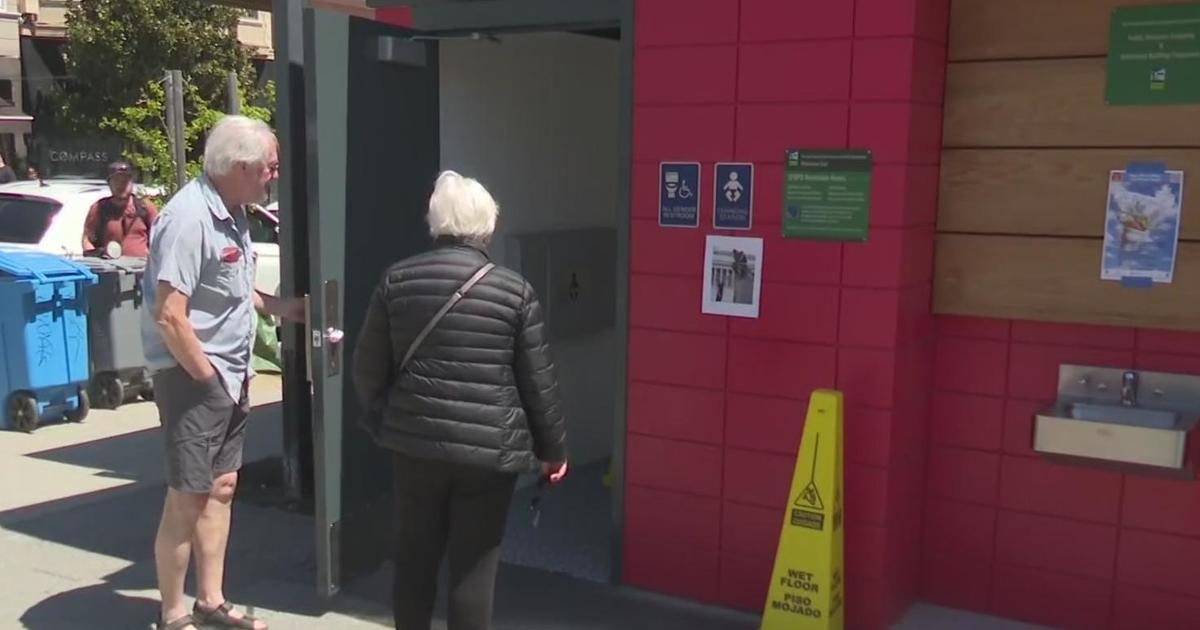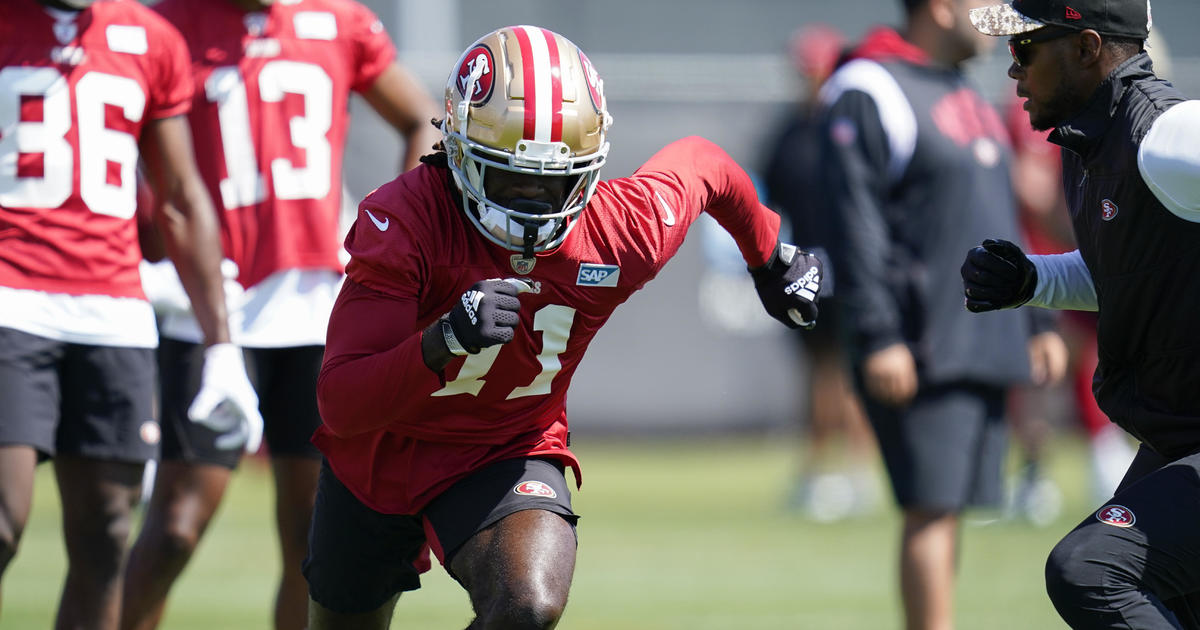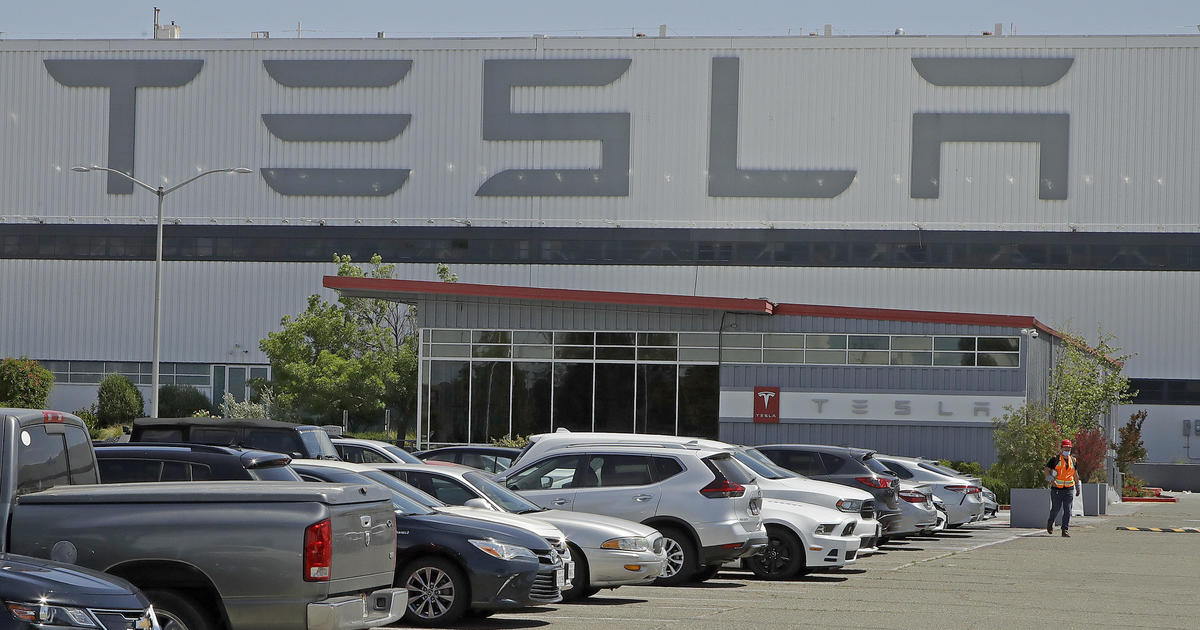Regulators Order Uber Self-Driving Cars Off Streets Of San Francisco
SAN FRANCISCO (CBS SF/AP) -- California regulators warned ride-hailing company Uber on Wednesday that it would face legal action if it did not immediately stop giving people in San Francisco rides in self-driving cars -- until it receives permission from the state.
Uber started a public pilot program in the morning, and hours later, the California Department of Motor Vehicles sent a letter saying that the service was illegal until Uber got a permit required for putting "autonomous vehicles" on public roads.
Uber knew about the permit requirement but argued that its cars do not meet the state's definition of an "autonomous vehicle" because they require a person behind the wheel to monitor and intervene if needed.
In a letter obtained by The Associated Press, DMV Chief Counsel Brian Soublet wrote that Uber "must cease" deploying the cars or face unspecified legal action.
"If Uber does not confirm immediately that it will stop its launch and seek a testing permit, DMV will initiate legal action," the letter said without elaborating.
Uber did not immediately respond to a request for comment.
The Wednesday launch in Uber's hometown expands a deployment of the cars it started in Pittsburgh in September. The testing lets everyday people experience the cars as Uber works to identify glitches before expanding the technology's use in San Francisco and elsewhere.
Making the distinction on the definition of an autonomous vehicle is in line with Uber's history of testing legal boundaries. Although the company has been around less than a decade, it has argued with authorities around the world about how much of its drivers' histories should be covered in background checks and whether those drivers should be treated as contractors ineligible for employee benefits.
The fact that someone is meant to sit up front and override the self-driving vehicle if something goes wrong does not appear to be foolproof. Earlier Wednesday, a taxi cab company recorded video of a car running a red light.
In response, Uber released a statement that said the issue was "human error" and read in part, "Safety is our top priority. This incident has been reported and we are looking into what happened."
Jim Petersen works for Golden Gate Transit, Uber just purchased a garage across the street to store its new automated vehicles. He says they keep parking in an illegal red zone.
"It's a hazardous situation. If they need more space I think they can afford it," said Petersen. "It's a bit of a hazard to have them right there where the city is allowing them to park in a red zone when we're trying to leave with our gigantic buses."
Riders were divided on ordering an automated automobile.
"I don't think it would make me feel safe," said Topacio Medina of Burlingame.
"I think self-driving cars are the future, so we better get used to it," said San Francisco resident Will Lee.
THE STREETS OF SAN FRANCISCO
Uber's self-driving tests in San Francisco began with a "handful" of Volvo luxury SUVs -- the company wouldn't release an exact number -- that have been tricked out with sensors so they can steer, accelerate and brake, and even decide to change lanes. The cars will have an Uber employee behind the wheel to take over should the technology fail. Users of the app may be matched with a self-driving car, but can opt out if they prefer a human driver. Self-driven rides cost the same as ordinary ones.
The cars will be put to the test in the congested streets of San Francisco. The city can be a daunting place to drive given its famously steep hills, frequent fog, street and cable cars, an active bicycle culture, and roads that are constantly being repaved, remarked and restricted for bike lanes and traffic management.
Uber believes its technology is ready to handle all this safely, though its executives concede the vehicles are nowhere near able to drive without a human ready to take control in dicey situations.
There was room for improvement during a Tuesday test drive attended by The Associated Press. The car was destined for a local pizza parlor, but didn't pull directly in front of the restaurant, and instead stopped in the middle of the street. The cars may strike some riders as over-cautious, too. During the test drive, one idled in a traffic jam even though an adjacent lane was clear, prompting the human driver to make the move himself.
Uber's fleet of Volvo XC90s won't be the first self-driving cars on San Francisco streets -- several other companies visit regularly with test prototypes, though none offers public rides.
Once testing is complete, the ultimate vision is to sell to the public technology which supporters argue will save thousands of lives because it doesn't drink, text, fall asleep or take dangerous risks.
PERMIT ME NOT
Under state law, self-driving tests on public roads require a permit from the Department of Motor Vehicles. The department has issued permits to 20 companies, mostly a collection of traditional automakers and tech companies -- but not Uber.
Uber argues that its cars aren't really autonomous, and thus aren't covered by the law. Under the law, an "autonomous vehicle" requires a permit if it can drive itself "without the active physical control or monitoring of a natural person."
According to Anthony Levandowski, the leader of Uber's self-driving program, Uber's cars simply aren't advanced enough to drive themselves without human monitoring. "We're just not capable of doing that yet," he said. Therefore, the Volvos are not autonomous and do not require a permit.
It makes no sense to get a permit when one is not needed, Levandowski said: "This is where science and logic needs to trump blind compliance."
In a statement issued late Tuesday, the DMV said it "encourages the responsible exploration of self-driving cars" and noted that 20 companies have permits to test hundreds of cars in California.
"Uber shall do the same," the statement said.
Operating without a permit arguably gives Uber a competitive advantage. Companies with one must report to the state all crashes and every instance in which a person takes control during testing. All that information is public. To receive a permit, a company must show proof of insurance, pay a $150 fee and agree that a human driver can take control of the vehicle.
Uber's stance seems likely to upset both state officials and competitors, said Bryant Walker Smith, a law professor at the University of South Carolina who tracked California's law as it was drafted in 2012. While an attorney could argue that Uber is reading the letter of California law correctly, Smith said, testing permits were "envisioned as a gateway, as an interim step" to launching self-driving cars on public roads.
Smith recalled discussing at the time the argument that Uber is now making: One day, a company might go public without a testing permit precisely because the law requires human oversight during testing.
TM and © Copyright 2016 CBS Radio Inc. and its relevant subsidiaries. CBS RADIO and EYE Logo TM and Copyright 2016 CBS Broadcasting Inc. Used under license. All Rights Reserved. This material may not be published, broadcast, rewritten, or redistributed. The Associated Press contributed to this report.



